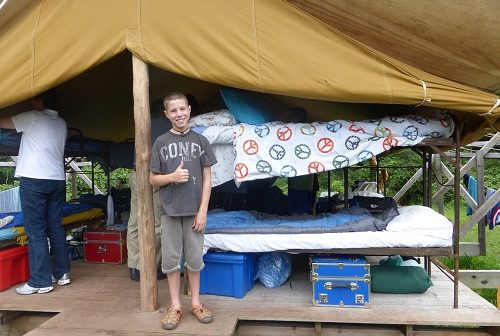I was pondering this question today when a friend whose family has run a summer camp for the last 40 years contacted me. Thinking about my own experience spanning three summers working in a camp and the myriad possibilities I would say there are unique experiences to be had attending a traditional summer camp.
Students spend approximately 180+/- in school each year. Add in tutoring, training programs, test prep and who knows what, a significant portion of a students life is spent sitting in a chair. Then if they spend their summer in yet another classroom setting most of the year is spent studying, studying, studying.
One might question the value of so much learning or one might question why I question it. To be blunt, students have gotten away from the true value of learning – engagement. Engaging in activities that require creative responses or personal challenges, which help a student grow, mature and meet potential hurdles in life.
On another front, there has been a lot of commentary about how “unsocial” people have become using social media, mobile phones and computers. People are ending up more confined and less focused on values while determining that to get ahead in life requires more studying. It was mentioned at the IECA Conference I attended, that the average student spends approximately 10,000 hours playing computer games by the time they hit university. That is an outstanding figure if it is even close to accurate.
So what are the potential benefits of a traditional summer camp? Let’s talk first about what a summer camp is – typically they are a bit rustic in nature, with either cabins or tents for housing, often located near a lake, in the mountains or a remote setting of sorts. Obviously there are many variations on camps but taking a traditional point of view here is the essence.
The benefits coming in taking students out of their comfort zone, bringing together young adults into a community that is built on traditions. While activities can be fun, sporty or adventurous, the key learning that happens is applicable to a variety of true educational experiences.
One of talking points of colleges and universities is leadership. Camps are true incubators of leadership skills. True leadership comes from decision-making, communication skills, responsibility and a passion for the endeavor. In camps when students engage in an activity from hiking with a group of peers or living in a close knit setting, students have to take part in the pure essence of leadership. Coping with unexpected challenges, taking part in untried experiences develops courage, introspection and cognitive development. All of these are developed in a way most students are unaccustomed to engaging in.
Learning new skills (archery, sailing, camping, horseback riding, crafts, etc…) an appreciation of the outdoors, environmental issues are all important components necessary for educational advancement. But something else happens to students who attend summer camp – there is a camaraderie that develops for the shared experiences. The singing of songs in the dining room, the ethos of the camp as expressed by the directors or counselors all help young minds develop critical thinking skills to prepare students not only for college but also for life.
At a very basic level, camp is about sharing, growing and maturing – all in a safe environment, where students are encouraged to take risks. So not only do camps develop personal skills to live and learn while adapting to a new environment, they are also helping students to apply critical thinking skills in order to coalesce skills learned in a classroom to a wide variety of activities.
One of the most important reasons to young adults to take on the adventures of summer camp is to get them out of the classroom and experience themselves. Many students I have met from Asia have very little understanding of who they are. They have rarely truly failed at something; instead they have been pampered, coddled, given awards or even pushed to levels of achievement that they do not even understand. Camps provide an environment to take stock, evaluate self and de-stress from the overload of classroom instruction.
I am sure many parents would see this thinking as a step back in the fine accruements of access to the vaulted halls of top colleges. Nothing could be further from the truth. All of the values mentioned are the qualities top schools seek in their successful applicants. What is important about these values is they are built up over time – the more time a person spends at camp, read multiple years, the more ingrained these qualities become. When a student needs to answer questions about self, about leadership, about overcoming failure, or other essay topics, they will have a wealth of experience to dig into.
I will not say one is better than other when choosing between camp and summer school. Certainly there are advantages to both. Camp is not for everyone but sometimes kids just need a break from school.
Hamilton Gregg is the founder of International Educational Consulting and has worked in education since 1985. He helps students and their families understand their personal and educational needs and find the right school to meet their requirements. If you are a student or parent who would like to ask Gregg a question on our blog, please email hsgregg45@gmail.com
Photo: Pixababy




